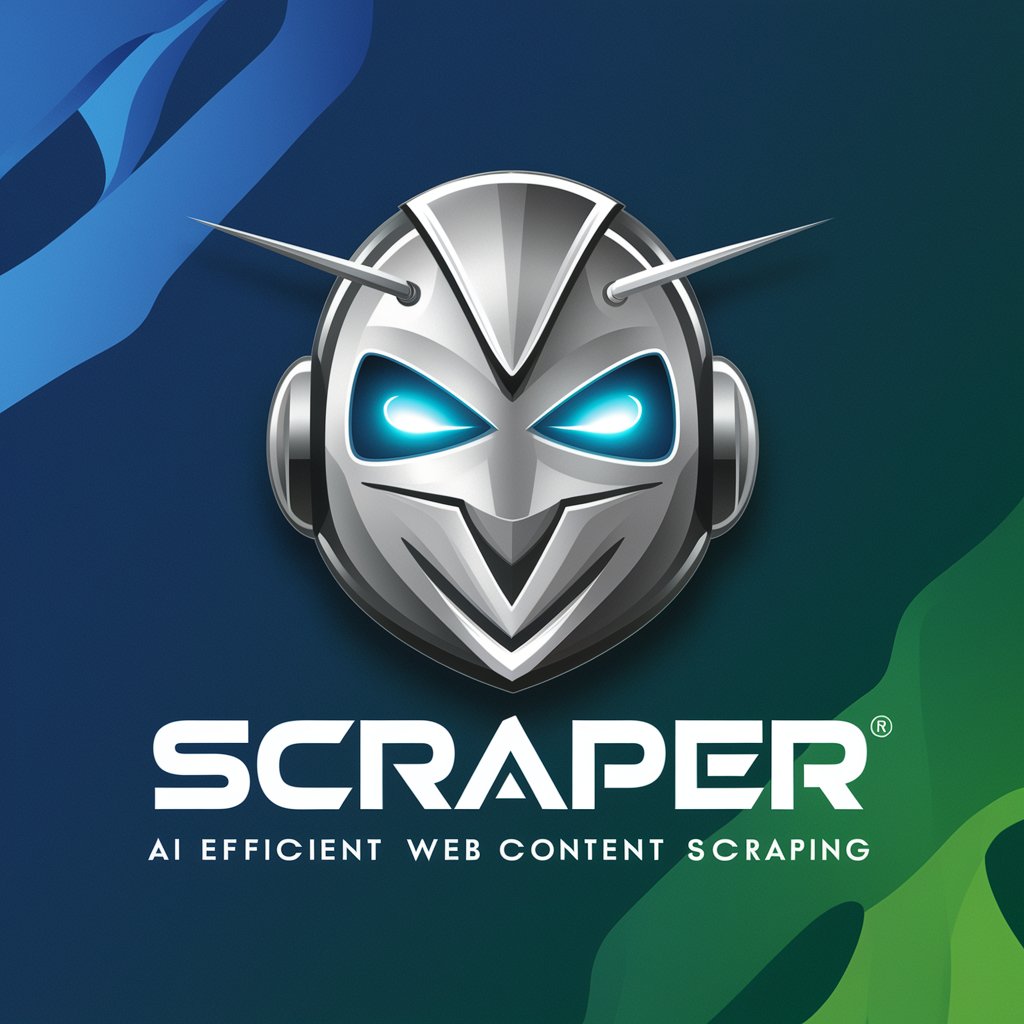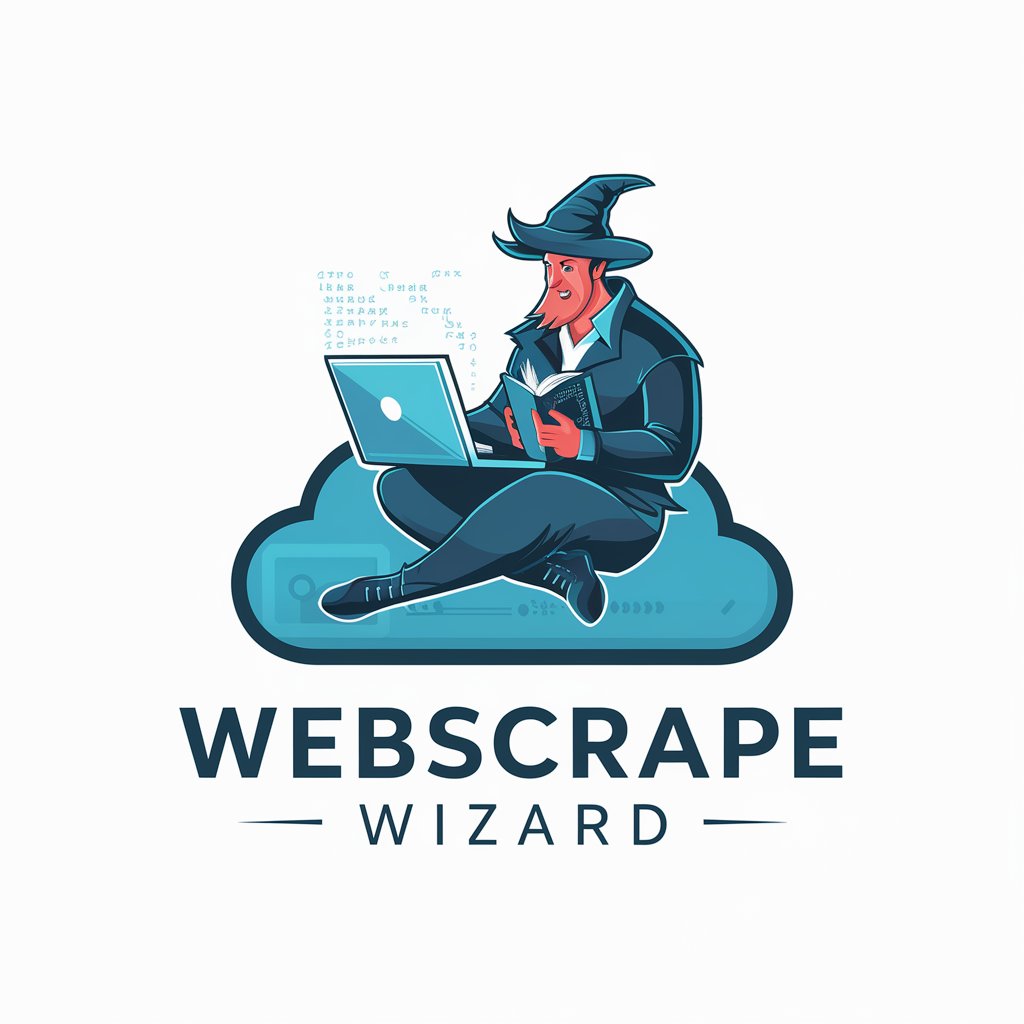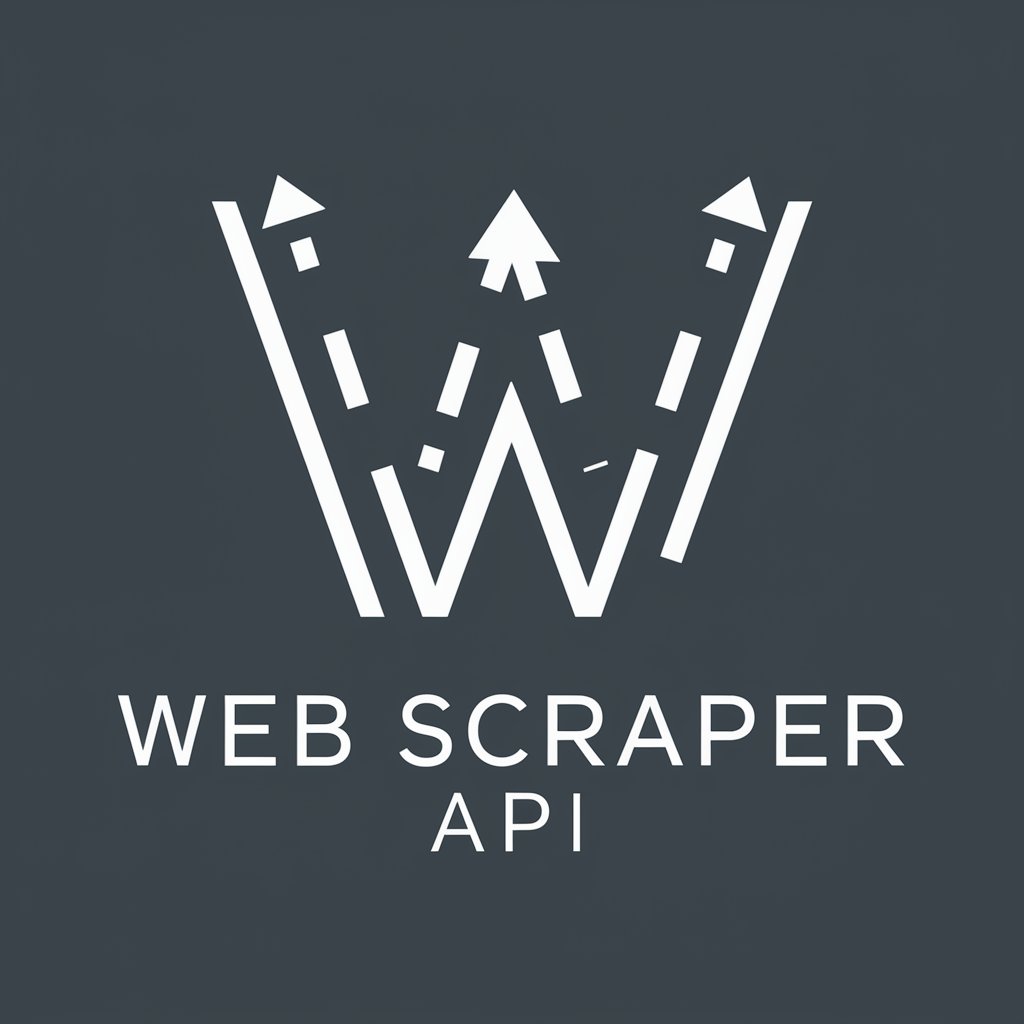
Web Sacraping API - Efficient Data Extraction
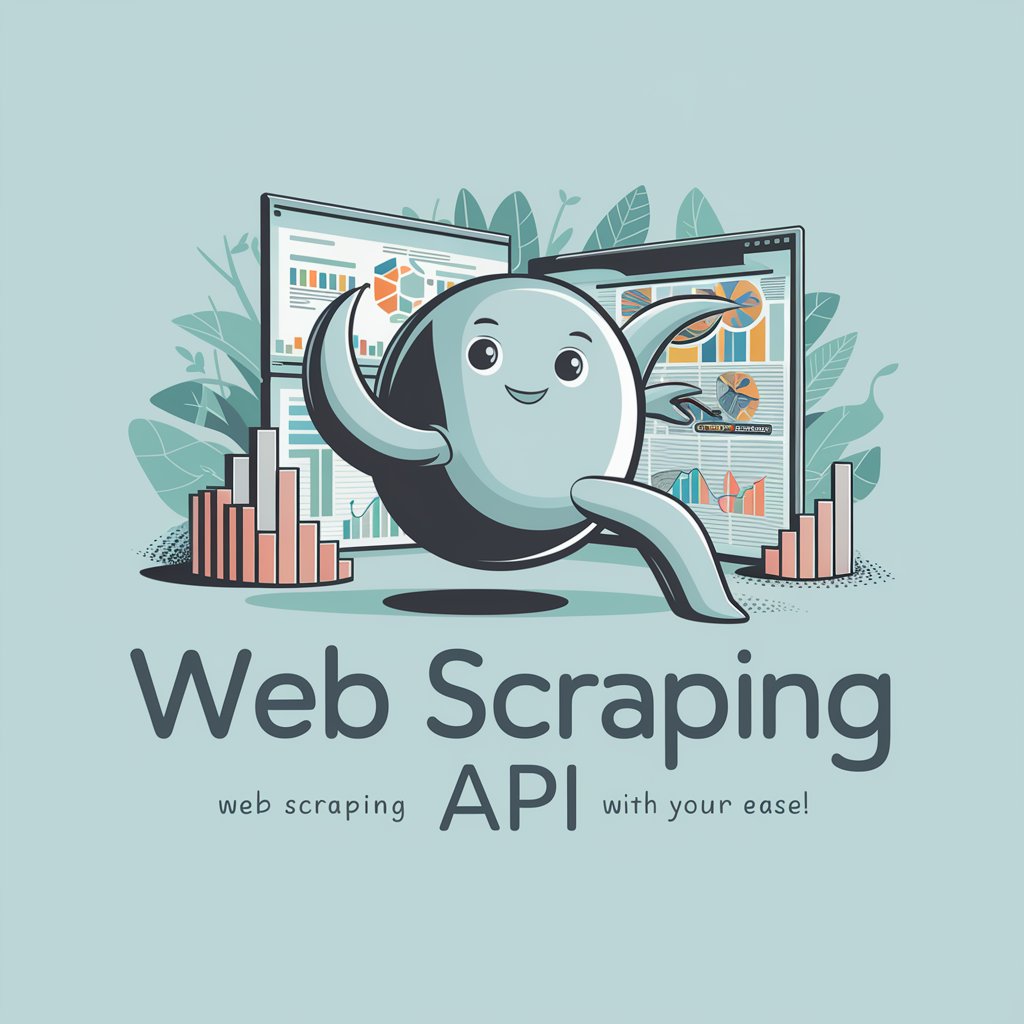
Hello! I'm here to help you harvest data efficiently.
Harness AI to Extract Web Data Seamlessly
Extract the product details from the URL
Provide the prices and descriptions of items from the webpage
List all available product options from the link
Summarize the main data points from the given website
Get Embed Code
Overview of Web Scraping API
Web Scraping API is designed to automate the process of extracting data from websites, converting unstructured web content into a structured format that can be easily analyzed and utilized in various applications. Its core functionality revolves around navigating web pages, parsing HTML content, and extracting relevant information based on predefined criteria. This includes retrieving product details, prices, reviews, and other data presented in a web page's HTML code. For example, a user can use Web Scraping API to monitor changes in product prices on e-commerce sites or to aggregate news articles from multiple sources for analysis. The API is built to handle tasks such as request throttling, IP rotation, and CAPTCHA solving to efficiently access web content that might otherwise be difficult or time-consuming to collect manually. Powered by ChatGPT-4o。

Core Functions of Web Scraping API
Data Extraction
Example
Extracting product details from an online store
Scenario
A company monitors competitors' websites to update their pricing strategy. Web Scraping API automates the collection of product prices, descriptions, and availability, enabling the company to adjust its prices dynamically.
Content Aggregation
Example
Aggregating news articles for content curation
Scenario
A news aggregation platform uses Web Scraping API to gather articles from various news websites, categorizing them into topics for users. This helps in providing a comprehensive view of the latest news across different sources.
Market Research
Example
Gathering data for market analysis
Scenario
Market researchers use Web Scraping API to collect information on consumer products, reviews, and social media mentions. This data is analyzed to understand market trends, consumer preferences, and to identify potential market opportunities.
SEO Monitoring
Example
Tracking search engine rankings for specific keywords
Scenario
SEO professionals use Web Scraping API to monitor changes in search engine result page rankings for targeted keywords. This information is used to refine SEO strategies and improve website visibility.
Target User Groups for Web Scraping API
E-commerce Businesses
E-commerce businesses benefit from using Web Scraping API for competitive analysis, price monitoring, and market research, helping them stay competitive by adjusting pricing and product offerings in real time.
Market Researchers
Market researchers leverage Web Scraping API to gather vast amounts of data on consumer behavior, product reviews, and market trends, enabling them to draw insights and make informed decisions.
SEO Professionals
SEO professionals use the API to track website rankings, backlinks, and keyword performance across search engines, aiding in the optimization of websites for better search engine visibility.
Content Curators
Content curators and media platforms use Web Scraping API to aggregate news, articles, and posts from various sources, simplifying the process of content curation and distribution.

Guidelines for Using Web Scraping API
1
Start by visiting yeschat.ai for a hassle-free trial, accessible without login or the need for ChatGPT Plus.
2
Familiarize yourself with the API documentation to understand its capabilities, request formats, and response structures.
3
Set up your development environment to integrate the API, ensuring you have necessary tools like a code editor and a working internet connection.
4
Experiment with the API using sample data to grasp how it extracts and processes information from websites.
5
Optimize your queries and data handling for efficiency and accuracy, and stay updated with API changes for continuous improvement.
Try other advanced and practical GPTs
Kantra Ai
Streamlining Beauty Routines with AI

BHS
Empowering Beauty Salons with AI-Driven Marketing

Assistente PPTR Puglia
Navigate Puglia's Landscape Planning with AI
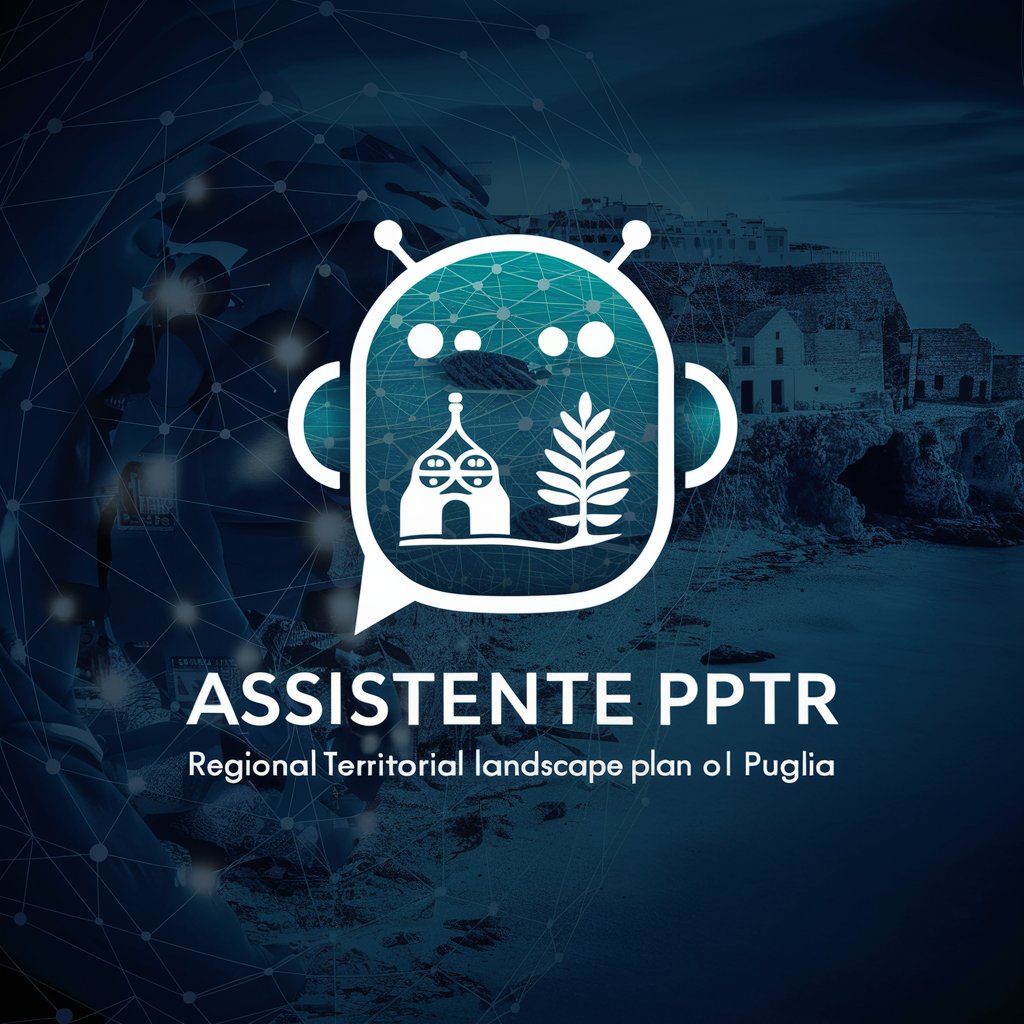
SL Cold Email Writer
Empowering emails with AI precision
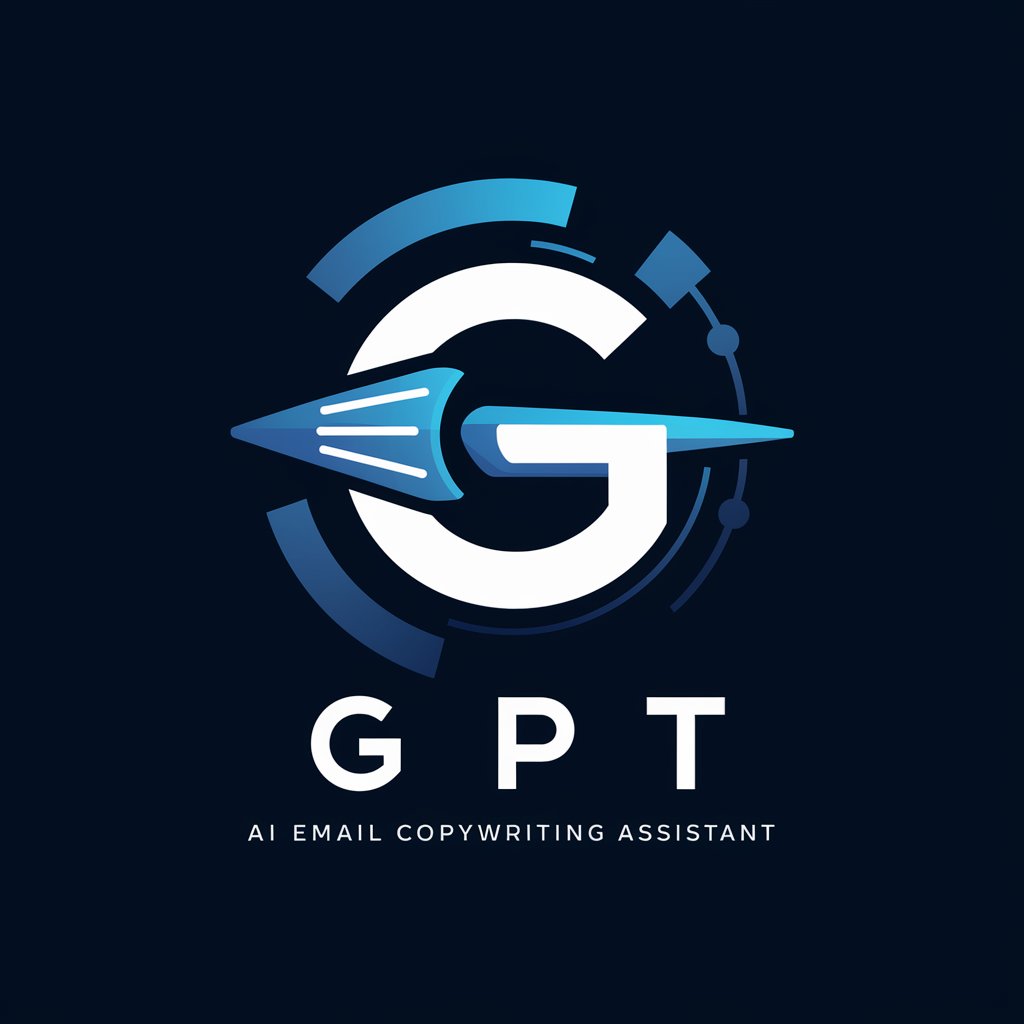
Primeira Página nos Motores de Busca
Elevate Your SEO Game with AI Power

Webshop-Assistent für Microneedling und Kosmetik
Empowering skincare with AI

Vibrant Storyteller
Bringing Stories to Life with AI

Corrector lingüístico de imágenes
AI-powered linguistic accuracy for images

Matchmaker Muse
Discover Your Perfect Match with AI

Green Mark
Empowering Green Innovations with AI

DGA Assistant
Empowering Education with AI

Little Science Explorers
Igniting Young Minds with AI-Powered Science

Frequently Asked Questions about Web Scraping API
What is the primary function of Web Scraping API?
Web Scraping API is designed to extract data from websites in a structured format, enabling users to gather information efficiently for various applications.
Can Web Scraping API handle dynamic content from websites?
Yes, it can process dynamic content generated by JavaScript, making it versatile for modern web applications.
Is there a limit to the number of requests I can make with the API?
The API may have usage limits based on your subscription plan, so it's important to check the terms of service for details.
How does Web Scraping API ensure the extracted data's accuracy?
The API uses advanced algorithms to parse and validate data, ensuring high accuracy and reliability of the information extracted.
Can I use this API for extracting data from any website?
While versatile, users must respect website terms of service and legal constraints regarding data scraping.
